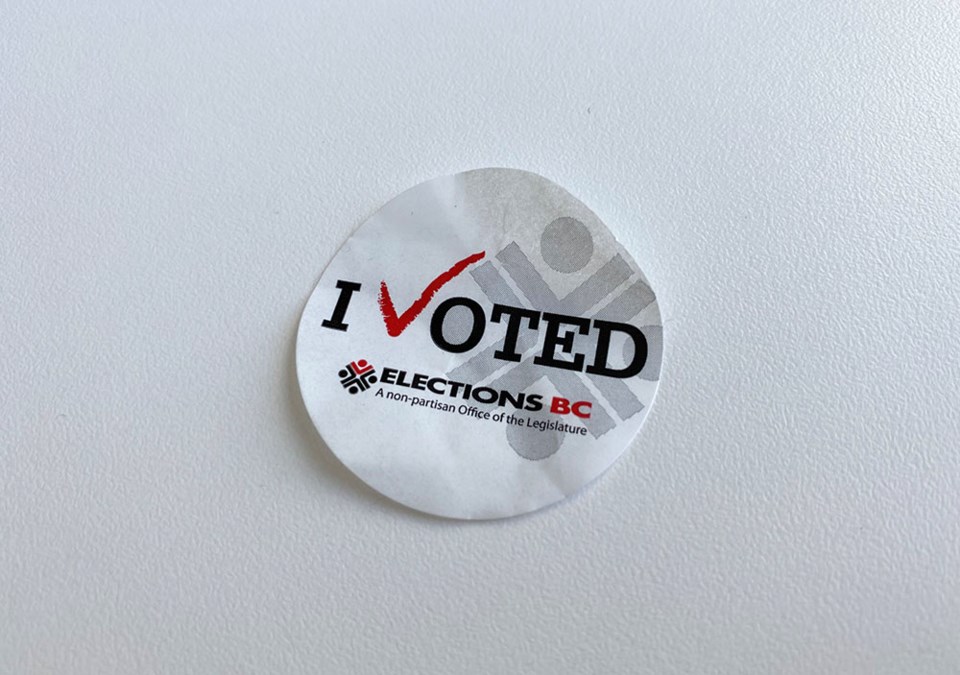The rise of the independent candidate coinciding the fall of a well-established party this provincial election cycle is adding some more intrigue to an already unexpected political landscape, a professor in the subject says.
"I am not sure if any of (the independents) will get elected, but it’s possible,” Hamish Telford, a political-science professor at the University of the Fraser Valley, said.
"I'm particularly looking at the competitions in the two Peace River ridings, where there are independent candidates, former BC Liberals, who are up against Conservative candidates and the NDP is historically very weak there.”
In those ridings, he said it should be just a two person competition when it comes to the MLA, but where there is name recognition and a strong reputation in the community, independents may have a chance of succeeding.
A similar situation may exist in some Okanagan ridings, also.
Stephen Johnston, for example, is running to be an independent MLA in West Kelowna Peachland. He was a vetted BC United candidate who handily won a seat on council in 2022. He faces a lesser known Conservative and NDP candidates in his bid for a seat as an MLA, meaning his name could help separate him from the pack on voting day.
There's also the possibility of vote splitting, though who that will benefit depends on the riding.
"In Kootenay East, for example, a former BC United person is running as an independent. ... that's an area where you would expect the Conservatives to do well, but the NDP usually gets over 30 per cent of the vote there," Telford said.
"So depending on how that split goes, between the independent and the Conservative, maybe the NDP could steal a riding like that."
It's happened before. Telford pointed out that in the last election, in a very conservative riding in Chilliwack, the NDP won a riding because a city councillor ran as an independent and got 24 per cent, the conservative got 30 per cent and the NDP came out ahead.
"When you do have these strong local candidates with name recognition in the community, then independents can inadvertently affects the outcome," he said.
In Kelowna Centre, a vote split may be what Coun. Loyal Wooldridge is looking for. It would turn the tide on a historically conservative stronghold in his favour.
That kind of movement in conservative ridings isn't always possible, or even likely, Telford said.
"I think it's still a long shot because people do like to vote for for party and of course, there's a conservative wave happening in Interior and north of the province," Telford said.
Telford's connections have indicated to him that the NDP, in this election cycle, are looking to protect much of what they won in the last election — they have 40 seats in the bag and there are 16 seats they won last election that are less-than-secure.
If they win half of those seats, they should maintain a majority. But, with some of them in not usually NDP territory, it's anyone's guess what will happen.
Harwinder Sandhu, the NDP MLA for Vernon and Lumby is in one of those ridings that is not historically NDP, but changed last election.
Regardless, Telford said that for political scientists, this is an exciting election.
"The issue historically in B.C., going back 100 years now, when liberals and conservatives work together in coalition they can defeat the NDP," he said. "The BC Liberals were that coalition vehicle. They were a self styled liberal conservative coalition."
But can Rustad occupy that space?
"Can he recreate a coalition with liberal and conservative voters or is it just conservative now? And where are liberals going to go, that’s the big question for this election," he said.
"If liberals go with John Rustad then he will win. if liberals are not comfortable then he can’t create that coalition."
Change the likes of BC United folding is already making this a significant election.
"That kind of thing happens once every 20 to 30 years in B.C.," Telford said.
Now it's up to voters to make the whole picture clearer, and the question is whether or not they will show up on polling day. The trend has been downward over the last 30 years, and last election saw historically low turnout.
"I would expect that to move up for a couple of reasons," he said.
"Elections that are perceived to be close tend to mobilize voters. The polls have been telling us this will be close. Elections that are deemed to be unusual for one reason or another, that might motivate some people to participate in the election."
Third, he said, this election is seeing important issues weighed and that tends to prompt voter engagement.
Advance voting is already underway. General voting day is Oct. 19.



